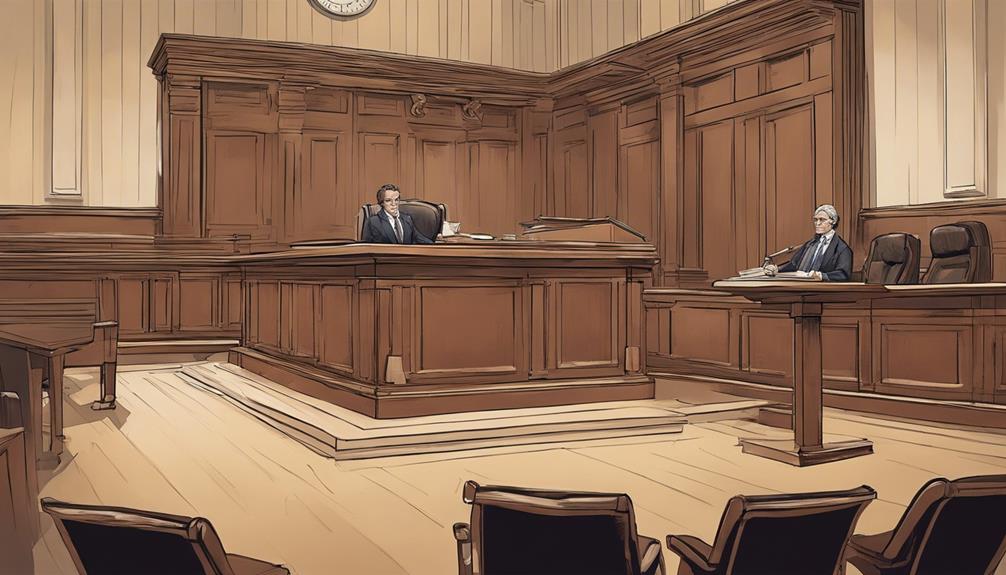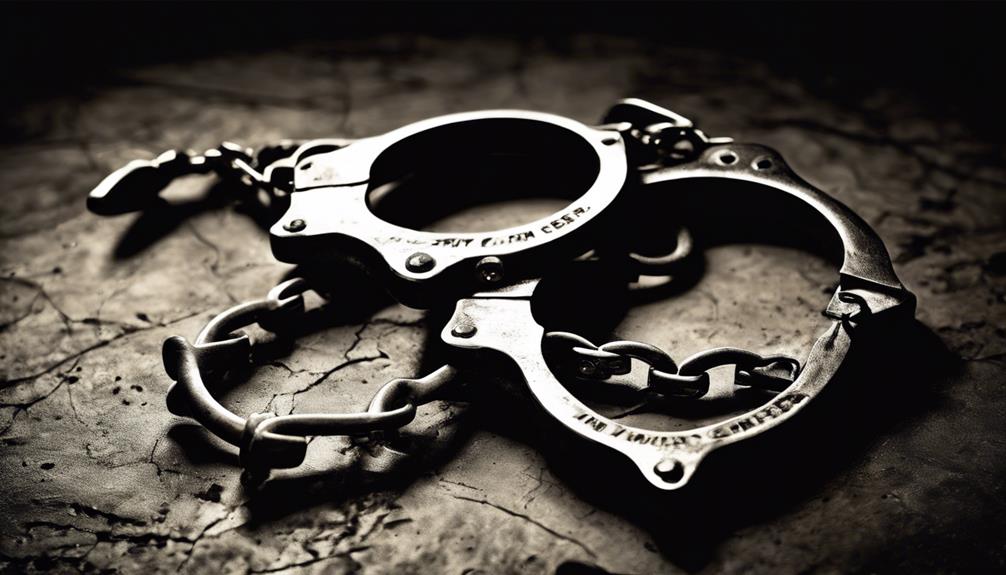If a witness fails to appear, it could have a significant impact on the case and potentially result in dismissal. Using a subpoena to compel their attendance is an option, with repercussions for non-compliance. Providing alternative evidence such as documents or expert testimony may be beneficial. Evaluate the importance of the witness’s testimony and the ability to substitute evidence to determine the likelihood of dismissal. Managing situations where the victim does not show up involves exploring alternative ways to gather testimony and ensuring witness protection. Defense attorneys can develop strategies and advocate for their clients. Refusing to testify can result in various legal consequences. Failure to comply with a subpoena may result in penalties. Witness tampering is illegal and carries severe consequences. Find out more about these implications.
Key Takeaways
- Assess importance of witness testimony.
- Evaluate substitutability of evidence.
- Consider factors for case dismissal.
- Examine witness relevance to case.
- Explore alternative testimonial methods.
Legal Implications of Missing Witness
The nonappearance of a key witness in a legal proceeding can greatly impact the prosecution's case, potentially leading to gaps in essential testimony that may weaken the overall argument. When a critical witness fails to show up, the prosecution may struggle to present necessary evidence, hindering their ability to prove guilt beyond a reasonable doubt.
Courts may proceed without the witness, but this absence can create challenges in effectively supporting the case. Defense strategies often capitalize on the missing witness to sow seeds of doubt and weaken the prosecution's stance.
The legal ramifications of missing witnesses extend beyond the immediate trial, potentially causing delays, complicating the presentation of evidence, and influencing case outcomes. Prosecutors must navigate these challenges adeptly to ensure a strong case despite the absence of key witnesses. Understanding the implications of missing witnesses is crucial for both prosecution and defense in pursuing a fair and just legal process.
Issuing a Subpoena for Witness

Handling the absence of a key witness in legal proceedings, especially due to unforeseen circumstances, may require the issuance of a subpoena to compel the witness's appearance. A subpoena is a formal legal document that mandates a witness to attend court or a deposition. To be valid, a subpoena must be properly served to the witness.
Failure to comply with a subpoena can lead to serious consequences like fines, imprisonment, or charges of contempt of court. Subpoenas play an essential role in ensuring witness presence and upholding the integrity of legal proceedings. By issuing a subpoena, the court can compel the witness to provide testimony in a case. It's a powerful tool that helps secure the attendance of essential witnesses and aids in the pursuit of justice.
Therefore, when faced with a missing witness, the issuance of a subpoena is an important step in safeguarding the legal process and obtaining crucial testimony.
Presenting Alternative Evidence
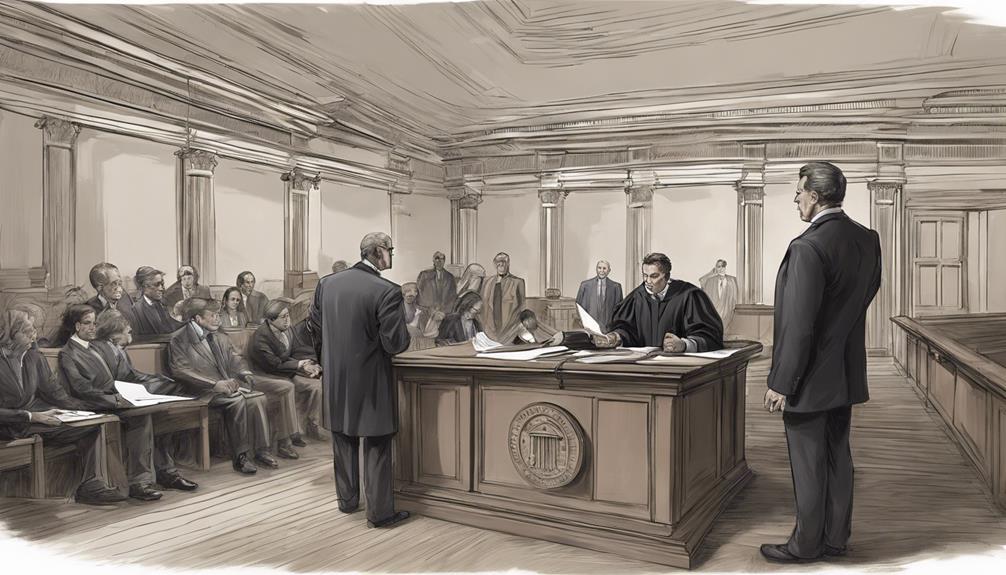
When a witness fails to appear, it's important to have alternative evidence ready to support the case.
This can include:
- Documentary evidence like emails
- Expert witnesses providing specialized knowledge
- Presenting circumstantial evidence.
Using Documentary Evidence
In legal proceedings, presenting documentary evidence offers an important alternative to relying solely on witness testimony. Documentary evidence includes written records, photographs, videos, and other tangible items that can help prove a party's case objectively.
Courts often admit documentary evidence as it's considered reliable, verifiable, and authenticated. Utilizing such evidence can be vital, especially in cases where witnesses fail to appear or testify. These documents provide a clear and concrete record of events, reducing the need for human memory and interpretation.
Calling Expert Witnesses
Expert witnesses play an essential role in legal proceedings by providing specialized knowledge or opinions relevant to the case. Their testimony can help clarify complex issues, provide scientific explanations, and strengthen the credibility of the case. Expert witnesses must be qualified in their field and approved by the court.
Their testimony can be critical in filling gaps left by missing or uncooperative witnesses. By presenting alternative evidence through expert witnesses, legal teams can support their arguments and provide valuable insights that mightn't be accessible through other means. Utilizing expert witnesses can have a profound impact on the outcome of a case by offering a deeper understanding of intricate matters and enhancing the overall presentation of evidence.
Providing Circumstantial Evidence
Presenting alternative evidence through circumstantial evidence can be a strategic approach in legal proceedings when direct witness testimony is unavailable or insufficient. Circumstantial evidence indirectly establishes facts by linking related circumstances through inference and reasoning. This type of evidence, which includes motive, opportunity, and behavior patterns, can fill gaps left by missing witnesses or direct evidence, constructing a compelling case.
| Benefits of Circumstantial Evidence | Examples | Impact |
|---|---|---|
| Supports arguments | Behavior patterns | Strengthens case |
| Fills gaps | Motive | Provides context |
| Establishes connections | Opportunity | Enhances credibility |
Case Dismissal Possibility Assessment
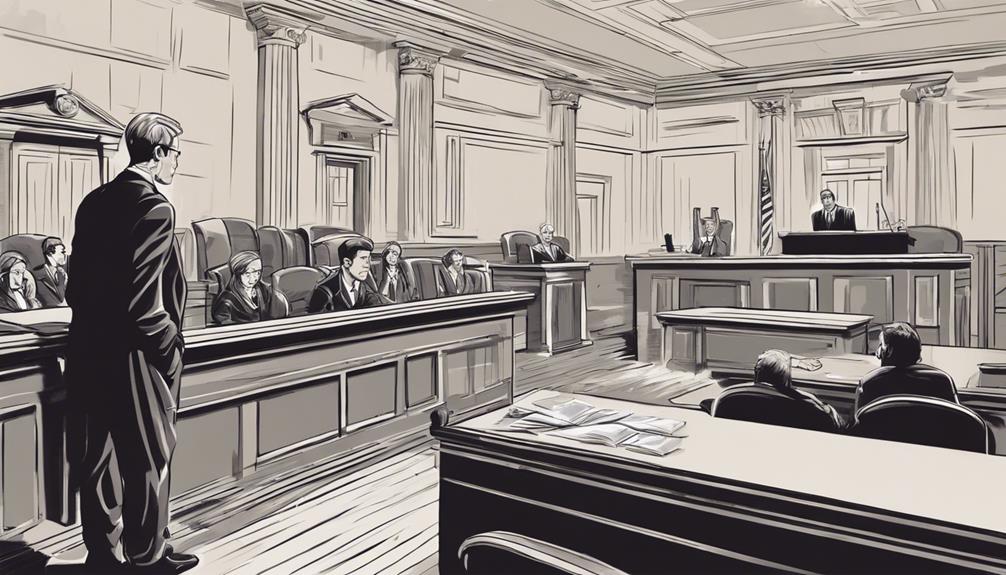
Assessing the possibility of case dismissal due to a missing witness depends on the criticality of their testimony in establishing guilt beyond a reasonable doubt. The judge will carefully consider various factors to determine if the case should be dismissed:
- Importance of Testimony: The judge will evaluate how vital the missing witness's testimony is in proving the case.
- Substitutability of Evidence: If the witness's testimony can't be replaced by other evidence, the case may be at risk of dismissal.
- Impact on Prosecution's Case: The judge will assess how the absence of the witness affects the prosecution's ability to present a strong case.
In essence, the decision on case dismissal rests on the significance of the missing witness in the overall case and its impact on proving guilt beyond a reasonable doubt. Factors such as the nature of the case, witness relevance, and available evidence will play a pivotal role in this assessment.
Handling Victims Non-Appearance
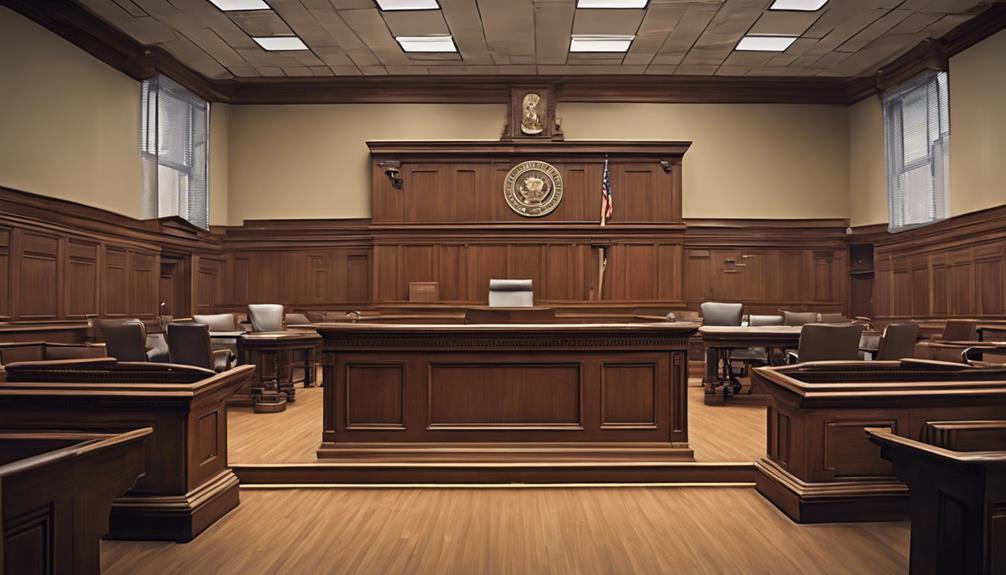
When a victim fails to appear, it can greatly impact the prosecution's case in criminal proceedings. The absence of a victim's testimony can weaken the evidence presented by the prosecution, making it more challenging to prove the case beyond a reasonable doubt. However, prosecutors have options to address the victim's non-appearance. They may proceed with the case utilizing other evidence, such as physical evidence, witness testimony, or expert opinions. Legal strategies can be employed to mitigate the impact of the victim's absence, guaranteeing that the case can still move forward.
In situations where a victim is unwilling or unable to testify, prosecutors can explore alternative testimonial methods or utilize witness protection programs to ensure the victim's safety and cooperation. It's crucial to address the reasons behind the victim's non-appearance promptly to avoid potential delays or complications in the legal process. By adapting their approach and utilizing available resources, prosecutors can navigate the challenges posed by a victim's non-appearance and continue pursuing justice in criminal cases.
Prosecutors Strategies Without Witness

Prosecutors faced with a missing witness can turn to substitute evidence strategies, such as utilizing third-party witnesses or expert testimony.
They may also opt to introduce prior statements made by the absent witness through hearsay exceptions.
Substitute Evidence Strategies
In cases where a witness fails to appear in court, prosecutors can employ substitute evidence strategies to bolster their case. This alternative evidence can come in various forms, such as:
- Physical evidence like surveillance footage or forensic findings.
- Expert testimony from professionals in relevant fields.
- Other witness statements or admissions made by the defendant.
Expert Testimony Alternatives
Utilizing expert testimony serves as a strategic alternative for prosecutors when witnesses fail to appear in court, offering specialized knowledge and insights to support the case. Expert witnesses play a vital role in interpreting complex evidence, such as forensic analysis or medical reports, providing valuable explanations for the court.
By filling the gap left by missing witness testimony, experts can strengthen the prosecution's argument with their professional opinions. Their expertise adds credibility and depth to the case, helping the prosecution to present a compelling narrative even in the absence of key witnesses.
Prosecutors rely on expert testimony to provide a solid foundation for their arguments, ensuring that the court has access to essential information despite the absence of certain witnesses.
Prior Statements Utilization
When faced with a missing witness, leveraging prior statements can strengthen the prosecution's case in court proceedings. Prosecutors can introduce prior witness statements to support their case, even if the witness is absent.
These statements, made outside of the courtroom, hold weight as evidence and can be admitted to provide vital insights. Whether a prior statement is consistent or inconsistent with the witness's current testimony can greatly impact the case's outcome.
Defense Lawyers Role in Absent Witness Case
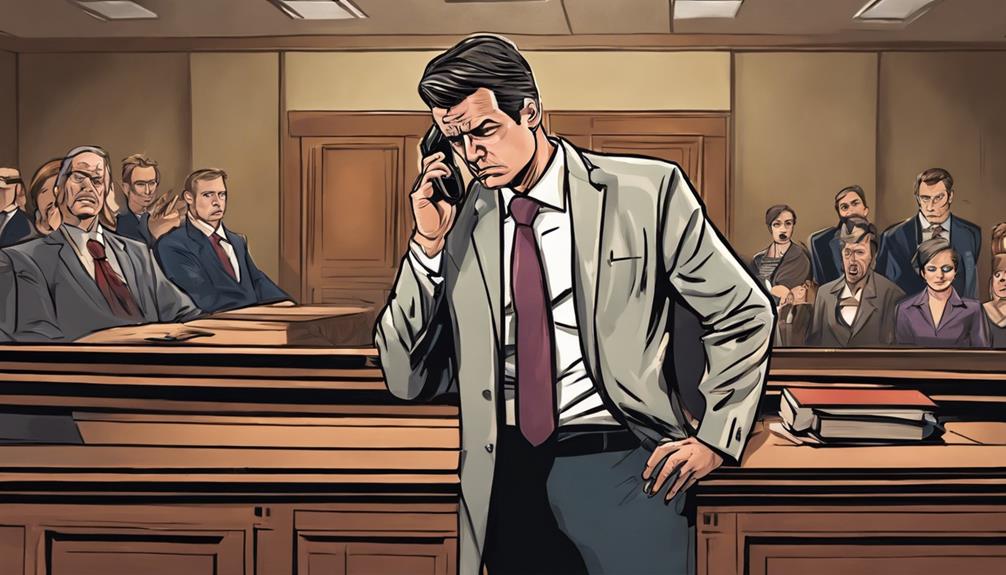
Defense lawyers play a pivotal role in cases where witnesses fail to appear, advocating for their clients' rights and challenging the prosecution's case. When a key witness is absent, defense lawyers must strategize to counter the impact on their client's case. They may question the validity of the prosecution's argument without essential witness testimony.
By exploring legal avenues and presenting alternative evidence, defense lawyers aim to uphold their client's right to a fair trial. Despite the challenges posed by missing witnesses, defense lawyers work diligently to mitigate the potential negative consequences. Their expertise in legal tactics and courtroom procedures allows them to navigate such situations effectively.
Through their actions, defense lawyers work to ensure that the absence of a witness doesn't unduly influence the case's outcome.
Victims Refusal to Testify Consequences
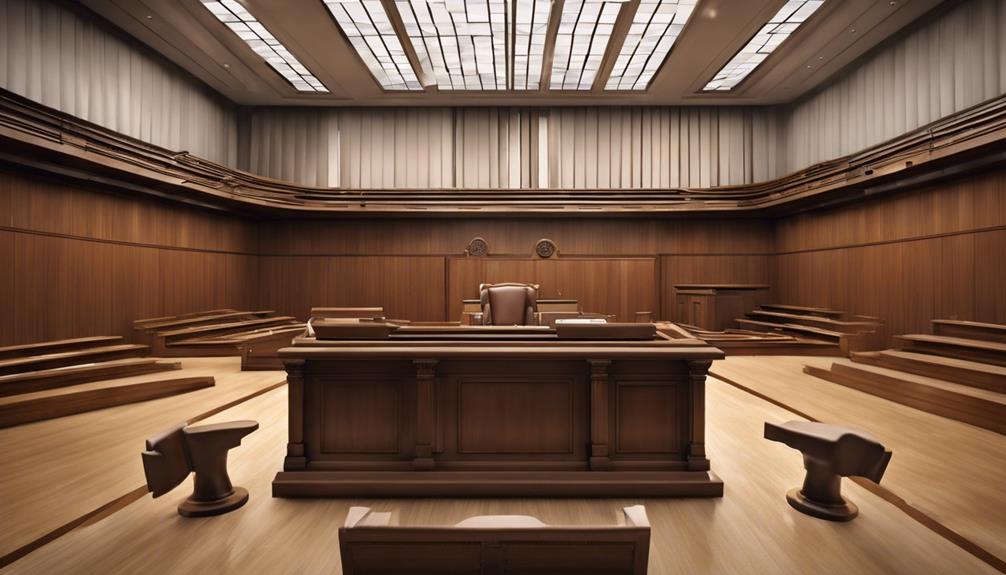
In cases where victims decline to testify, the legal consequences can vary depending on the circumstances and the jurisdiction. Prosecutors have options to proceed without the victim's testimony in criminal cases, as the victim's opinion isn't decisive in charging decisions.
To guarantee the victim's cooperation, threats of false police report charges may be utilized. Legal procedures exist to compel witnesses to appear, such as material witness warrants. It's crucial to emphasize that the victim's refusal to testify doesn't automatically lead to case dismissal.
The legal system is equipped to handle such situations, and prosecutors can still pursue charges even without the victim's direct testimony. Ultimately, the consequences of a victim refusing to testify will depend on the specific details of the case and the legal strategies employed by the prosecution.
Subpoena Non-Compliance Consequences
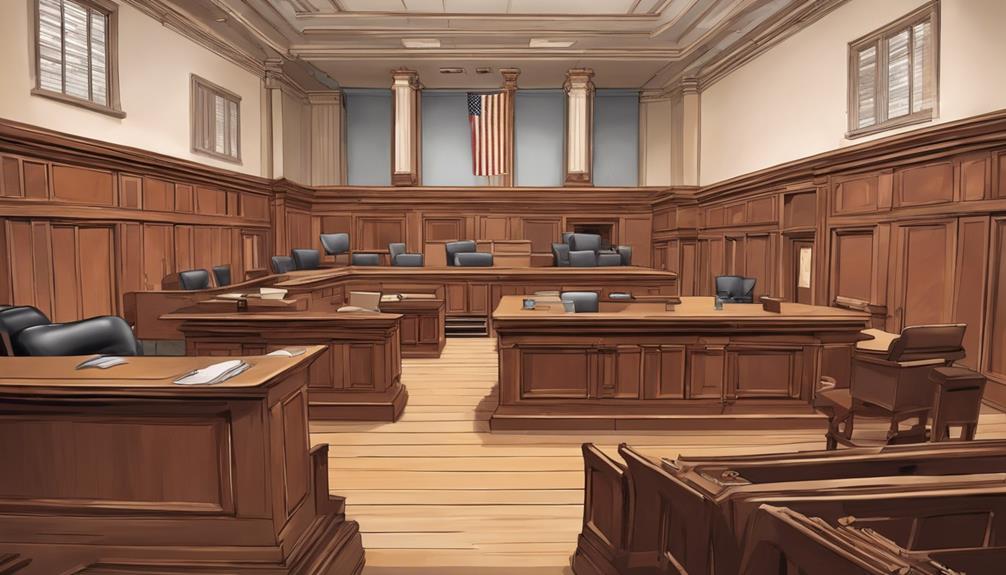
Facing non-compliance with a subpoena can result in individuals being charged with contempt of court. This legal offense can lead to various consequences, such as fines, imprisonment, and other civil penalties. When a witness fails to comply with a subpoena, subpoena enforcement may be pursued to guarantee their appearance.
The legal ramifications of not showing up as a witness can have a significant impact on the outcome of the case, affecting the overall legal process. It's vital for individuals involved in legal proceedings to understand the importance of complying with subpoenas to avoid facing contempt charges. Failure to adhere to a subpoena not only disrupts the legal process but can also result in serious repercussions for the non-compliant individual.
Hence, it's essential for witnesses to fulfill their legal obligations and cooperate with the court's orders to prevent facing further legal consequences.
Witness Tampering Legal Ramifications
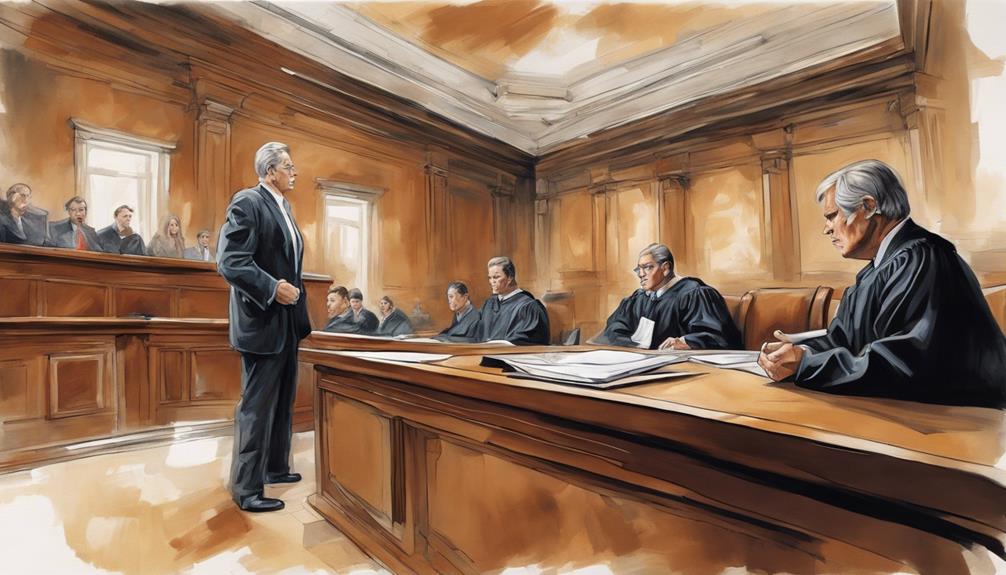
When a witness tamperers, they risk being charged with a class 4 felony in Colorado, leading to imprisonment and substantial fines. Witness tampering is a serious offense with severe consequences that can greatly impact legal proceedings.
Here are some key points to keep in mind regarding witness tampering:
- Legal Ramifications: Witness tampering is a class 4 felony in Colorado, carrying penalties that may include imprisonment and hefty fines.
- Influence on Testimony: Attempting to influence a witness's decision is illegal and can lead to severe consequences, affecting the integrity of the legal process.
- Impact on Cases: Refusing to testify can hinder criminal cases, making it challenging for prosecutors to prove their case and potentially causing delays in the pursuit of justice.
It is essential to uphold the integrity of the legal system by adhering to ethical standards and avoiding any form of witness tampering.
Frequently Asked Questions
Can a Case Be Dismissed if the Witness Doesn T Show up in Texas?
In Texas, a case can potentially be dismissed if a witness fails to appear, but it's not automatic. Factors like witness importance and effort to secure their presence influence the judge's decision on case dismissal.
Can I Plead the Fifth as a Witness?
A witness can assert their Fifth Amendment privilege to avoid self-incrimination. Consulting with an attorney is advisable to understand how and when to plead the fifth. Asserting this right does not automatically indicate guilt.
What Happens if You Are Subpoenaed and Don T Want to Testify Florida?
If subpoenaed and unwilling to testify in Florida, individuals could face contempt charges. This may result in fines, imprisonment, and legal consequences. Witness protection programs, legal counsel, written statements, depositions, or expert testimony are alternatives.
How Do I Find Out What Sentence Someone Got in Court Uk?
In the UK, individuals can learn about court sentences by requesting details from the court. Providing case specifics like the defendant's name and court location is essential. Accessing sentencing information helps understand the outcomes of court cases.
Conclusion
To sum up, when a witness doesn't show up, legal proceedings can be affected, and the case may be dismissed if vital testimony is missing. Issuing a subpoena, presenting alternative evidence, and handling non-appearances are important steps to keep in mind.
Defense lawyers play a key role in managing an absent witness case, and consequences for witness non-compliance or tampering can be severe. It's essential to address these challenges effectively to guarantee a fair and just legal process.

